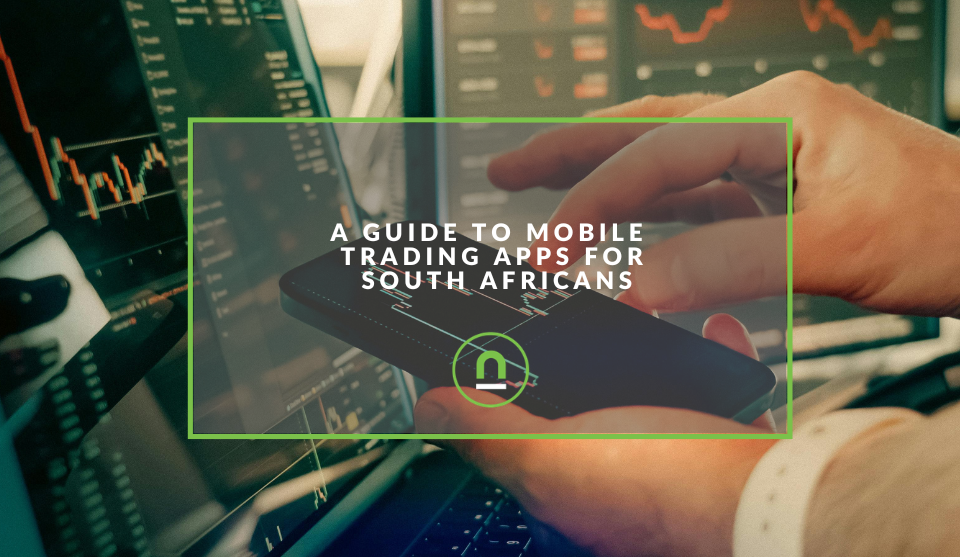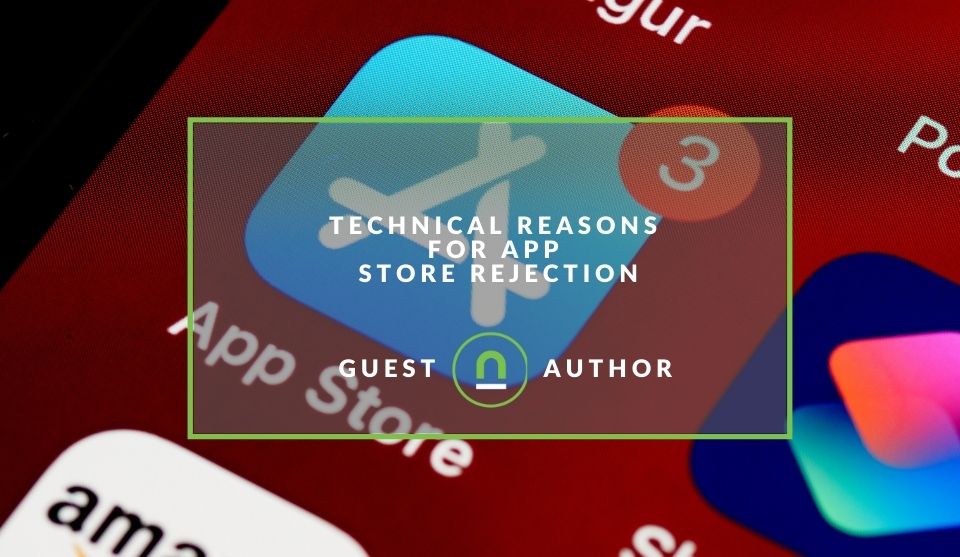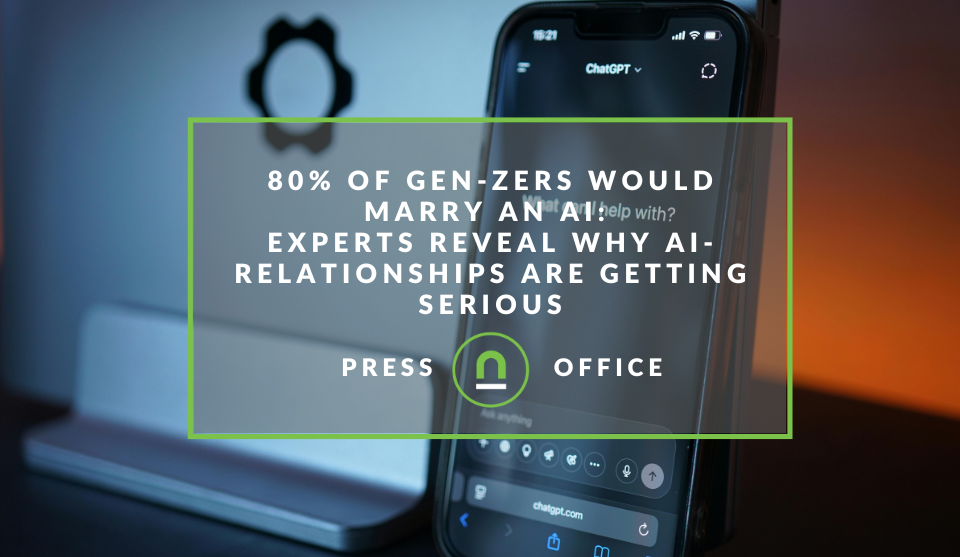Recent posts

Athletes
Peptide Use for Muay Thai Training
23 February 2026

Money Talks
A Guide To Mobile Trading Apps for South Africans
19 February 2026

Press Releases
Rehab Your Knee: A Free, Evidence-Based Guide to Smarter Recovery
12 February 2026

Money Talks
XRP vs. Stablecoins: Which Is Better for Cross-Border Payments in 2026?
28 January 2026
Popular posts
Extravaganza
Trending Music Hashtags To Get Your Posts Noticed
24 August 2018
Geek Chic
How To Fix iPhone/iPad Only Charging In Certain Positions
05 July 2020
Extravaganza
Trending Wedding Hashtags To Get Your Posts Noticed
18 September 2018
Money Talks
How To Find Coupons & Vouchers Online In South Africa
28 March 2019
Technical Reasons For App Store Rejection
23 July 2021 | 1 comments | Posted by Kosha Shah in Geek Chic
Approaching such a competitive environment like the iOS app store, which already has over 2 million apps, is not a simple task. Also, smartphone applications are being developed and released day after day by mobile app development companies and by blooming creators.
If you successfully have your app authorised by the censors in the very first go around and clear Apple's strict review procedure, you will discover that you have been rewarded handsomely.
The value and usability of the apps accessible for the different mobile devices are significant to the effectiveness of the user interface. Apple is well-known for its commitment to customer experience and efficiency and has established a stringent procedure for application approval on the iOS App Store.
As a result, it is critical for creators to explore Apple's review process, why applications are denied, and whatever they can do to avoid wasting their hard-earned cost and resources invested in app design.
Apple has been very open about the grounds why applications are frequently refused in this respect. Today, we will look at the key technical reasons for App store rejection and how to cope with them.
Key Reasons Why Your Application Could Be Rejected by Apple
Viruses, glitches, lousy performance and UI/UX issues
It comes as no surprise that a bug-free application is a good indicator of excellence, so don't assume Apple to be too lenient with others who are the reverse. That's why many applications go through numerous tests before being launched.
Applications with a bad UI/UX that might be misleading for consumers, and those with extremely sluggish download speeds, fall under this category. Virtually any problem that indicates consumer discontent should be investigated and resolved.
Compatibility of hardware and software
The second point for your question as to why Apple rejects your app is the compatibility of specific hardware and software. Your app programs must function on all current platforms, for both software and hardware, according to Apple's requirements.
They have given particular weight to applications' capability to operate on the iPad. Therefore keep that in mind during your evaluations. Applications which have any compatibility problem with some of the more recent operating systems are incredibly likely to be dropped.
Apple also emphasises the significance of app development that does not waste assets or place a greater load on gadgets (e.g. excessive heat). Applications that encourage or urge consumers to disable essential iOS features are likewise severely discouraged. To put it with a better approach, if your app doesn't operate on every Apple smartphone device, you've got an issue.
To summarise, you must ensure that your software is compatible with all Apple-compatible mobile apps. Use the App Marketing Tools to figure out what's wrong. This emphasises the necessity of reviewing and keeping compatibility in consideration well before any application progress is made.
Other app's imitation
Before you go through the effort of upgrading the current mobile trend, think carefully. Apple might not think it's a good fit for its niche.
Furthermore, Apple despises wasting the energy of its critics and customers with duplicate material. Just about any imitation software with hardly any uniqueness will be rejected from the App Store. It might be claimed that Apple is more stringent in this respect, yet this doesn't rule out the possibility that specific programs slip through the cracks.
What precisely qualifies one as a "duplicate" or "copycat"? Apple's judgment is essentially what determines whether or not any iOS application is an imitation. That's why, while developing and creating your application's idea, it's preferable to go for uniqueness as far as feasible. To do much-needed investigation, go over the App Store, then test out applications that match your selected speciality.
Using a different payment method
The use of alternative payment services to access app functions has been the most prevalent cause for rejection. By giving services such as quick payment modes to your customers will earn loyalty. You must also employ an in-app payment system as per the rules. You should also make sure to have your application authorised if you follow Apple's in-app payment policy.
Apple is doing this to guarantee that consumers have a safe way to pay. This major obstacle might derail your app, particularly if you're transitioning a webpage to an app. There may be a couple of payment options linked to your page.
Pay attention, however, that Apple allows exceptions in some circumstances, such as when services and products are supplied outside of the application or even when your application includes a hardware-based function.
The same can be said about cryptocurrency programs, particularly concerning payments. To manage cryptocurrency payments and transfers, the applications must operate with an authorised platform. Likewise, before offering any services or products, Apple Pay-enabled applications must provide transaction details to the customer.
Privacy
All applications that feature in the iOS app store must adhere to Apple's privacy policy. This includes, among other things:
- Including a privacy policy message in the metadata is a good idea
- Defining your data collection policy and giving a reason is vital
- Letting people withdraw their permission to the information collection
Apple has stressed the importance of stating that there are two types of links that must be included in apps. To begin, every app should offer a direct link to assistance and contact details.
Second, you should provide a link to a Privacy Policy webpage if you've got a kid's application or when the app offers a premium option. Ensure GDPR and Apple's privacy policies are compatible if you haven't done so previously.
Apple sign-in is absent
If your program allows users to sign in with Google, Twitter, or Facebook, Apple sign-in is required. That's because the rules say that applications using alternative sign-in options must also provide an Apple sign-in feature.
Gaining authorisation is tricky unless you incorporate the Apple sign-in with the application. As a result, if your app consumers have several sign-in options, you must first synchronise Apple sign-in before submitting your application for authorisation.
Key takeaways
How far do you expect Apple's consumers will keep supporting the company's capability to deliver superior applications for their gadgets and if it relaxes its restrictions and allows problematic, obnoxious, or deceptive applications into its store? Simply put, every Apple app store refusal has a legitimate cause.
It consumes a lot of effort and energy to resubmit the application and have it accepted. Instead, it is a smart strategy to consider the causes for refusal and move appropriately. Only when your application has been authorised should you begin promoting your iOS app.
It will be impossible to acquire momentum for your application until then. You can finally have your application authorised in no time and achieve better user engagements. So, by following the steps outlined above, you can avoid app store rejection.
About the author
Kosha Shah is a digital strategist at Technostacks Infotech, a top web, software, and mobile app development company in India, the USA, and the UK. She writes engaging blog topics for trends, mobile, and industry software news.
Tell us your story
Would you like to write for nichemarket just like Kosha has? Find out how to submit a guest post, and when you're ready, you can contact us.
Contact us
If you would like to know more about digital marketing for your business, then don’t be shy we’re happy to assist. Simply contact us
Are you looking to promote your business?
South African finance business owners can create your free business listing on nichemarket. The more information you provide about your business, the easier it will be for your customers to find you online. Registering with nichemarket is easy; all you will need to do is head over to our sign up form and follow the instructions.
If you require a more detailed guide on how to create your profile or your listing, then we highly recommend you check out the following articles.
Recommended reading
If you enjoyed this post and have a little extra time to dive deeper down the rabbit hole, why not check out the following posts on mobile apps.
- 12 Benefits Of A Progressive Web App
- How PWA Can Prove To Be Advantageous For Your Business
- How To Reduce Your Spending When Developing an App
- Mobile Marketing Strategies For The Mobile Marketer
- How to Write an Effective App Description That Generates Downloads
- 5 Crowdfunding Platforms to Get Funded Your Mobile App
- How the Best Mobile Apps Produce A Winning App Redesign
Tags: App Store, App Marketing
You might also like
80% of Gen-Zers Would Marry an AI
19 January 2026
Posted by Steph M in Press Releases
Experts reveal why AI relationships are getting serious, and the reasons why 4 in 5 young people are open to marrying ai as human dating becomes too ...
Read moreXRP vs. Stablecoins: Which Is Better for Cross-Border Payments in 2026?
28 January 2026
Posted by Pham Van in Money Talks
XRP or Stablecoins? Discover which wins for cross-border payments in 2026. Compare speed, costs, and stability in our latest global finance guide.
Read more{{comment.sUserName}}
{{comment.iDayLastEdit}} day ago
{{comment.iDayLastEdit}} days ago
 {{blogcategory.sCategoryName}}
{{blogcategory.sCategoryName}}

